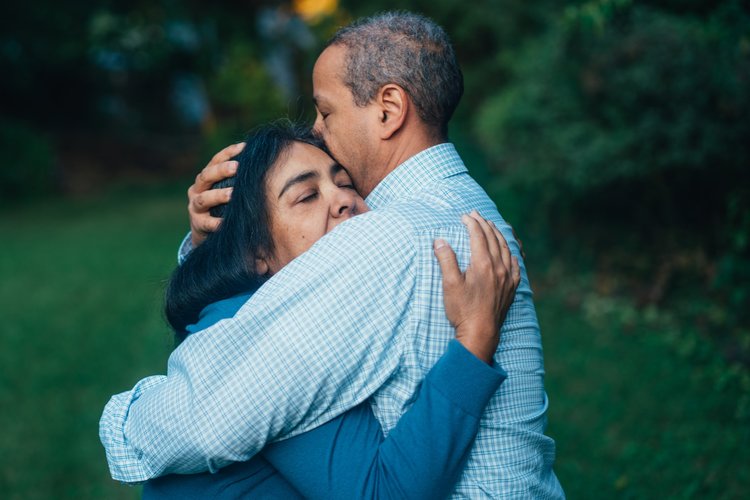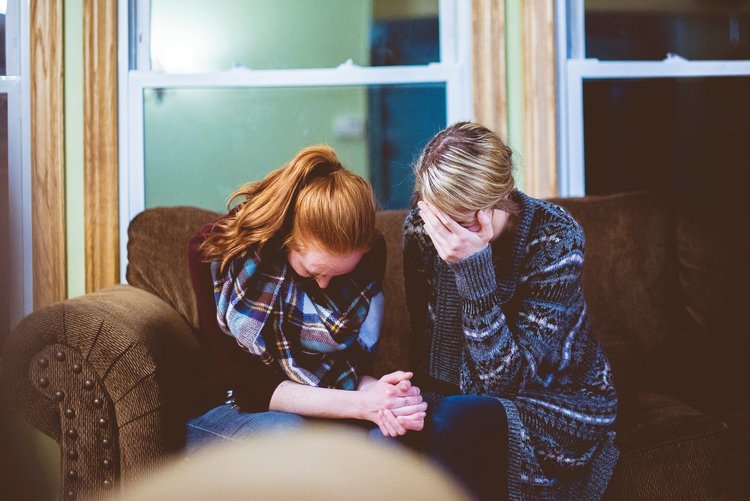
Family Loss
Each member of your family experienced connections with your child differently. As a result, each family member may go through the grieving process in a different way. To help each other grieve, build a safe space that promotes open communication, vulnerability, and mutual support.
The loss of a young or unborn child is quite different from the loss of a family member who lived a long and full life. The hopes and dreams a parent had for the child can live on after the child’s passing, making the loss an especially difficult one. Some family experts believe that rather than seeking closure, what helps families most is finding meaning in the loss. Drawing on natural strengths, and support from professionals when needed, families have the potential to grow stronger relationally and emotionally after having suffered tragedy, such as the loss of a child.
Partner Loss
Mourning the loss of a child is hard. As a partner it can be difficult to know how to process the grief and offer support to others. The attachment process has been different for you. Although you did not have the opportunity to connect physically to your child, you might have begun envisioning a beautiful future with your child. Allowing yourself the opportunity to go through the grieving process is important. Men and women often experience and express grief differently, and men may not have the same outlets or social supports as women. It is important to remember and accept that grief will be expressed in different ways. Grief should not be used to measure the amount of love that has been lost for your child. It is important that you take time to acknowledge your grief and identify ways of coping together as a family.
Grandparents and Grief
“When a grandchild dies, grandparents grieve twice. They mourn the loss of the child and they feel the pain of their own child’s suffering. Sometimes we forget about the grandparents when a child dies. You can help by not forgetting, by offering the grandparents your love, support and presence in the weeks and months to come.”
Grandparents hold a unique space within the family. They experience your loss from that of a parent and a grandparent. Grandparents have the role of supporting their children as they grieve. This role may require them to take on the role of the protector and support. They may suppress emotions to help support and encourage you. Watching their child suffer can be a powerless experience because they cannot remove the hurt that is felt. At some point, grandparents will also need to take time to acknowledge their feelings of grief for the loss of their grandchild. Grandparents may feel guilty because of the loss of such a young life or they may mourn the loss of the ability to share and create memories.
How can I support grieving grandparents?
- Acknowledge their grief- Understand that they may be enduring this loss on multiple levels and will need to take time to process everything.
- Accept differences- Grandparents may grieve the loss differently from the parents. Grandparents may find it difficult to accept the desires of parents for keepsakes and photos. Accept these differences and try to help them understand the importance of the choices that the parents are making.
- Include Grandparents- Include them in the care of both parents and the child.
For additional support for grandparents visit the Center for Loss.
Books for Grieving Grandparents
Sibling Loss
Children may use their thoughts, fears or feelings to communicate grief. They may become upset when you are talking about death. Talking about death can be difficult for adults and trying for children. If you find it hard to have the discussion, stop and revisit the topic later. Let you them know that it is ok to show their feelings and share yours with them. Children may use play and art work to share their feelings. Have conversations about their artwork and offer them opportunities to play. Children may feel guilty about the loss. They may think that they were responsible. Encourage conversations and talk through these emotions. Children often need extra attention and support to navigate their emotions and feelings. Try to support this need by having family and friends available for them. This will also help you to focus on your grieving process. Seeking outside help from trained counselors can provide additional support.
Consider the following professional resources for support: teachers or school counselors, pediatricians and health care providers, bereavement support groups, community based mental health agencies, and hospice agencies.
Websites with Resources that can Help
- Resources at mombaby.org
- The Stillbirth Foundation
- The MISS Foundation
- The Compassionate Friends
- The TEARS Foundation
- AAP Guideline for Grief
- Though the Darkness Gather Round: Devotions about Infertility, Miscarriage, and Infant Loss by Mary Elizabeth Hill Hanchey (Editor), Erin McClain (Editor)






